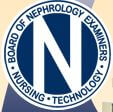Theme: “Recent advancements of research and treatment in the field of nephrologyâ€
World Nephrology 2017
Conference Series Ltd invites all the participants across the globe to attend the 13th World Nephrology Conference which is scheduled to organize on October 18-19, 2017 Dubai, UAE. 13th World Nephrology Conference will discuss the latest research technologies and therapeutic aspects developed for various kidney diseases which include renal transplantation, dialysis equipment’s and other procedures involved in treatment of Chronic Kidney Diseases and End Stage Renal Diseases. This year’s annual Conference highlights the theme “Recent advancements of research and treatment in the field Nephrology”.
World Nephrology 2017 is a unique platform to meet fellow key decision makers and experts all-around nephrologists and kidney specialists from leading universities and research institutions making the conference perfect platform to share experience, Research talks, foster collaborations put forward many thought provoking strategies across industry and academia, and evaluate emerging technologies across the globe.
Conference Series Ltd organizes a conference series of 3000+ Global Events with over 1000+ Conferences, 1200+ Symposiums and 1200+ Workshops in USA. Europe & Asia with support from 1000 more scientific societies and publishes 700+ Open access journals which contains over 30000 eminent personalities, reputed scientists as editorial board members.
About Nephrology:
Nephrology is a branch of medicine which concerns itself with the study of normal kidney function, kidney problems, the treatment of kidney problems and renal replacement therapy (dialysis and kidney transplantation). Kidneys have a fibrous capsule and it is covered by pararenal fat. Kidney itself can be divided into renal parenchyma, which consisting of renal cortex and medulla. Many diseases affecting the kidney are systemic disorders not limited to the organ itself, and may require special treatment. It includes conditions such as systemic vasculitides and autoimmune diseases as well as congenital or genetic conditions such as polycystic kidney disease.
Why Dubai, UAE?
Diabetes, obesity and high blood pressure are the leading cause of chronic kidney diseases. Around 19% of the UAE population is expected to suffer from diabetes and 17 % from hypertension. Around 40 % of all these patients are expected to develop some form of chronic kidney disease in their lives. Lifestyle changes have to be undertaken an early age by people to avoid the vicious circle of lifestyle diseases leading to kidney and heart diseases which in turn leads to kidney and heart failure. According to International Federation of Kidney Foundation, 1 in 10 of the general population has some degree of chronic kidney disease. Early detection of the symptoms and proper treatment can help in controlling disease progression
The main objectives of the World Nephrology 2017 are to:
- Advancement of research for physicians and other professionals in the care of patients with kidney disease.
- Development of medical research.
-
Facilitate the delivery of high-quality healthcare to patients with kidney disease.
Provide a forum to present new research and treatments for kidney disease. - Renal transplantation surgeons, Immunologists, Diabeticians, physicians, Young Researchers, Business delegates and talented students to interchange experiences and formulate new medical strategies.
Target Audience:
- Nephrologists
- Renal Practionists
- Kidney coordinators
- Renal Transplantation surgeons
- Physicians
- Scientists
- Nephrology Associations and Societies
- Business Entrepreneurs
- Training Institutes
- Software developing companies
- Manufacturing Medical Devices Companies
- Data Management Companies
- Students
World Nephrology 2017 conference is the leading event which rotates between continents and is organized in collaboration with regional nephrology societies with the innovative theme “Recent advancements of research and treatment in the field Nephrology”.
Summary of World Nephrology Conference
World Nephrology deals with study of kidneys as well as its diseases like normal kidney function, kidney problems, the treatment of kidney stone problems and renal replacement therapy, CKD which are common like haemodialysis and kidney transplantation. Kidney function studies: Increased levels of blood urea nitrogen and creatinine are the hallmarks of acute renal failure. Systemic conditions that affect the kidneys such as diabetes and autoimmune disease and systemic problems that occur as a result of kidney problems such as renal osteodystrophy and hypertension are also studied in nephrology. A physician who has undertaken additional training to become an expert in nephrology may call themselves a nephrologists or renal physician.
13th World Nephrology Conference will discuss the latest technologies and therapeutic aspects developed for various kidney diseases which include renal transplantation, dialysis equipment’s and other procedures involved in treatment of Chronic Kidney Diseases and End Stage Renal Diseases. This year’s annual congress highlights the theme “Recent advancements of research and treatment in the field Nephrology”.
World Nephrology 2017 is a remarkable event which brings together a unique and International mix of nephrologists and kidney specialists from leading universities and research institutions making the conference a perfect platform to share experience, foster collaboration across industry and academia, and evaluate emerging technologies across the globe.
According to recent statistics report, nearly 26 million adults apart from young and old aged people are suffering from Chronic Kidney Disease complaints and millions of others are at increased risk. The numbers of Kidney transplantations are seemingly very high and in the year of 2013 alone, there are around 15000 kidney transplantations. Due to the rapid increase for the risk of renal disorders, Nephrology 2017 aims to decrease the incidence rate of kidney disease through its international conference on nephrology and cordially invites participants across the globe to discuss and arrive under possible solutions for one of the major critical problems of mankind.
Scope and Importance of Nephrology Research
World Nephrology 2017 conference has been fostering the need to control the impact of permanent renal disease within the public health environment. The lack of a systematized control provided through a measurable program has greatly impacted on the level of hospital expense since they have increased their case-mix risk, family economies deteriorate and health care pays for a higher morbimortality that could be avoided with better surveillance and epidemiological control. World Nephrology 2017 aims to bring together leading Researchers, Academicians, Physicians and Industrialists to exchange and share their experiences and research in order to decrease the incidence rate of kidney disease by new techniques and latest technologies.
This unique opportunity to hear the latest discoveries and network with global experts to discuss improving patient care, Renal Data System trends, and key findings at an open forum for providers to share best practices discussions about reducing hospitalizations, improving volume control, increasing the PD patient population, nutritional management and sodium modelling, and CKD education. The Organizing committee of Nephrology conference takes the honour of inviting Renowned nephrologists, renal transplantation surgeons, immunologists, Diabeticians, physicians, World-class surgeons, Young researchers, Business delegates and talented student communities working in the field of nephrology to share their research experiences and indulge in interactive discussions at the event.
Why Dubai, UAE?
Diabetes, obesity and high blood pressure are the leading cause of chronic kidney diseases. Around 19% of the UAE population is expected to suffer from diabetes1 and 17 % from hypertension2. Around 40 % of all these patients are expected to develop some form of chronic kidney disease in their lives. Lifestyle changes have to be undertaken an early age by people to avoid the vicious circle of lifestyle diseases leading to kidney and heart diseases which in turn leads to kidney and heart failure. According to International Federation of Kidney Foundation, 1 in 10 of the general population have some degree of chronic kidney disease.
Early detection of the symptoms and proper treatment can help in controlling disease progression
Dubai, United Arab Emirates, April 10, 2014: Chronic kidney disease is a state in which the pair of kidneys in a person's body gradually loses its ability to filter wastes and excess fluids from their blood, often leading to kidney failure. These wastes and excess fluids which normally gets excreted, starts building up in a patient's body leading to serious complications like swelling of arms and legs due to fluid retention, fluid retention in lungs, anemia, cardiovascular diseases, damage to central nervous system and kidney failure. In UAE, high prevalence of lifestyle diseases like diabetes, hypertension and obesity have long been identified as the main causes of kidney diseases.
The high incidence of lifestyle diseases is proving to be life-threatening for people in this region, with an alarming increase in the number of patients with kidney failure who are enrolling for treatment, regular dialysis and transplant every year. Fortunately with current medical advances in UAE, treatment is available to control kidney diseases effectively, even if diagnosed at a late stage, however early detection is the best to prevent and delay the progression to end stage kidney disease.
High blood pressure overtime damages the arteries and filtering units of kidneys (nephrons), leading to irreparable kidney damage. Diabetes accounts for high blood sugar levels (hyperglycemia) damaging blood vessels in the kidneys. Obesity increases diabetes and blood pressure complications. All these elements form a vicious circle of one complication leading to another, resulting in life threatening complication of kidney and heart failure. Accurate treatment process has to be undertaken to treat the complications and prevent further damage.
Medical innovations have eased the treatment options available for patients with end stage kidney disease, allowing them to go to hospital just once a month if they are on home type of dialysis. It makes a patient's life easier and comfortable as they can live their regular life, work and spend time with family. It makes treatment more convenient and the patient more compliant.
Members Associated with Nephrology Research
There are 1,00,000 professional members from more than 126 countries. In addition, with eminent scientists from across 120 countries, Directors & CEO’s, Researchers, Post Docs, Physicians including transplant surgeons, Immunologists, Diabeticians, Directors & Brand Manufacturers/ Marketers of Consumer Products. Professors and Students from academia in the field of Nephrology.

Hospitals Associated with Nephrology Research
There are several hospitals offering kidney treatments including dialysis and transplantation. They are well known for health care and fast recovery is promised from the hospital combined with a pleasant and suitable caring atmosphere. According to the global statistics they were nearly 11500 Hospitals in cites associated with kidney treatments and 17000 doctors of Middle East working in the hospitals.
Societies Associated with Nephrology Research
Nephrology Societies leads the fight against kidney disease by educating health professionals, sharing new knowledge, advancing research, and advocating the highest quality care for patients. As per the statistics they were 9,000 Nephrology societies across the globe.
Major Nephrology Societies around the Globe
International Society of Nephrology (ISN)
American Society of Nephrology (ASN)
Indian Society of Nephrology (ISN)
Canadian Society of Nephrology (CSN)
Hong Kong Society of Nephrology (HKSN)
The Renal Association
Australian and New Zealand Society of Nephrology (ANZSN)
Malaysian Society of Nephrology (MSN)
National Kidney Foundation (NKF)
Saudi Society of Nephrology and Transplantation (SSN&T)
Industries Associated with Nephrology Research
Profiles of 1600 leading Industries out of 35production and functional industries were involved with each component of this diagnostic system is designed and developed with utmost engineering using most advanced technology considering the requirements of clinicians engaged in interventional procedures.

Universities Associated with Nephrology Research
Albany Medical College
Boston University School of Medicine
Columbia University College of Physicians and Surgeons
David Geffen School of Medicine at UCLA
Florida State University College of Medicine
Georgetown University School of Medicine
Indiana University School of Medicine
Johns Hopkins University School of Medicine
Loma Linda University School of Medicine
Northeastern Ohio Universities College of Medicine
Ohio State University College of Medicine
Tulane University School of Medicine
University of Maryland
Vanderbilt University School of Medicine
Weill Cornell Medical College
Yale University School of Medicine

Market Value on Nephrology Research
The global nephrology market will grow from nearly $3.8 billion in 2012 to $4 billion in 2013. In 2014 to be worth $6.3 billion for a compound annual growth rate (CAGR) of 2.7%.This year, the global market for products used in the fight against kidney diseases will be worth an estimated $5.5 billion, according to a new technical market research report, the Global Nephrology Market, from USA Research. Market revenue is forecast to increase at a five-year compound annual growth rate (CAGR) of 8% from 2013 to 2018, totalling nearly $6 billion in 2018, and it is estimated that on an average 25% of the population throughout the world will be effected with Kidney Diseases by 2025.

Market Growth of Nephrology Research in the last and upcoming ten years
The growth in the number of training programs and slots has likely been driven by a variety of factors, including a perceived workforce shortage, efforts by both academic and private practice nephrologists to enhance their own workforce to meet clinical demands, and the laudable desire to develop and maintain teaching programs by both academic and practicing nephrologists. This increase in training slots has led to a dramatic increase in nephrologists. Between 2015 and 2020, nephrology grew more rapidly than any internal medicine subspecialty other than geriatrics. The increasing number of graduating trainees and practicing nephrologists may in the near future, if it has not already, lead to a sluggish job market for new trainees.
Products manufactured by the industry related Nephrology Research and it’s Market Value in UAE:
• Dubai Medical College for Girls, UAE
• Gulf Medical University Ajman, UAE
• United Arab Emirates University, UAE
• University of Sharjah, UAE
• Ras al-Khaimah Medical and Health Sciences University, UAE
• Faculty of Medicine, King Fahad Medical City, Saudi Arabia
• Oman Medical College, Oman
Fund Allotment to Nephrology Research
Being one of the major fields of Internal Medicine, Nephrological research received a funding of more than 5 billion dollars annually across the globe. Nearly $560 million is being funded on Kidney diseases alone per year. The maximum level of funding is $80,000 per year in Middle East and shall be used principally to support the global development as well as training-related expenses.
Statistics of Marketers, Researchers and Academicians working on Nephrology
Nephrology 2017 conference gathers renowned scientists, physicians, surgeons, young researchers, industrial delegates and talented student communities in the field of nephrology under a single roof where networking and global partnering happens for the acceleration of future research. Following are the areas for targeting the audience from:
Physicians 900
Student 1500
Academia 220
Therapist’s 1200
Track1: Nephrology and Therapeutics
Nephrology is a branch of medicine that deals with the diseases of the kidneys and bladders and it focuses on the diagnosis and treatment of Nephrology diseases. The kidneys are paired retroperitoneal organs that lie at the level of the T12 to L3 vertebral bodies. The kidney has a fibrous capsule, which is surrounded by Para renal fat. The kidney itself can be divided into renal parenchyma, consisting of renal cortex and medulla, and the renal sinus containing renal pelvis, calyces, renal vessels, nerves, lymphatic and per renal fat. This renal parenchyma has two layers: cortex and medulla. The renal cortex lies peripherally under the capsule while the renal medulla consists of 10-14 renal pyramids, which are separated from each other by an extension of renal cortex called renal columns. The kidneys serve important functions, including filtration and excretion of metabolic waste products (urea and ammonium); regulation of necessary electrolytes, fluid, and acid-base balance; and stimulation of red blood cell production. They also serve to regulate blood pressure via the renin-angiotensin-aldosterone system, controlling reabsorption of water and maintaining intravascular volume. The kidneys also reabsorb glucose and amino acids and have hormonal functions via erythropoietin, calcitriol, and vitamin D activation.
Nephrology conferences | kidney conferences | Nephrology congress | Conference Series
Related Conferences: 15th International Conference on Nephrology & Therapeutics on August 28-30, 2017 Philadelphia, USA; 2nd Annual Kidney Congress on August 28-30, 2017 Philadelphia, USA; 12th Global Nephrologists Annual Meeting on June 26-28, 2017 London, UK; 12th Annual Nephrology & Urology conference on July 06-07, 2017 Kuala Lumpur, Malaysia; 16th European Nephrology Conference on October 02-03, 2017 Barcelona, Spain
Track 2 Clinical Nephrology:
Clinical Nephrology is a specialty of medicine and pediatrics that concerns itself with the study of normal kidney function, Nephrology diseases, the treatment of Nephrology diseases and renal transplantation therapy (dialysis and kidney transplantation). Kidneys play a vital role for life with their complex network of blood vessels and intricate network of tubes and tubules that filter blood of its waste products and excess water. Kidneys maintain fluids, electrolytes, and acid-base regulation that are altered by kidney disease conditions as well as drugs and toxins. Nephrology disease deals with study of the normal working of the kidneys as well as its diseases. Kidney infections, Cancers of the kidneys, bladder, and urethra, Effects of diseases like diabetes and high blood pressure on kidneys, Acid base imbalances, Nephrotic syndrome and nephritis, Ill effects of drugs and toxins on the kidneys, Dialysis and its long term complications - dialysis includes hemodialysis as well as peritoneal dialysis, Autoimmune diseases including autoimmune vasculitis, lupus, etc. Polycystic kidneys diseases where large cysts or fluid filled sacs are formed within the kidney impairing its functions - this is a congenital and inherited or genetic condition.
Nephrology conferences | kidney conferences | Nephrology congress | Conference Series
Related Conferences: 15th International Conference on Nephrology & Therapeutics on August 28-30, 2017 Philadelphia, USA; 2nd Annual Kidney Congress on August 28-30, 2017 Philadelphia, USA; 12th Global Nephrologists Annual Meeting on June 26-28, 2017 London, UK; 12th Annual Nephrology & Urology conference on July 06-07, 2017 Kuala Lumpur, Malaysia; 16th European Nephrology Conference on October 02-03, 2017 Barcelona, Spain
Track 3 Pediatric Nephrology
In the pediatric and neonatal intensive care units Acute kidney injury (AKI) is a common complication where Renal transplantation therapy is frequently implemented in children in whom the supportive therapy is not to the mark to touch the metabolic demands. In majority, peritoneal dialysis is more preferred for children in the times of renal transplantation because of the non-complexity of the procedure. In most of the pediatric end stage renal nephrology disease, peritoneal nephrology dialysis is more preferred as it can be done even in home.
Nephrology conferences | kidney conferences | Nephrology congress | Conference Series
Related Conferences: 15th International Conference on Nephrology & Therapeutics on August 28-30, 2017 Philadelphia, USA; 2nd Annual Kidney Congress on August 28-30, 2017 Philadelphia, USA; 12th Global Nephrologists Annual Meeting on June 26-28, 2017 London, UK; 12th Annual Nephrology & Urology conference on July 06-07, 2017 Kuala Lumpur, Malaysia; 16th European Nephrology Conference on October 02-03, 2017 Barcelona, Spain
Track 4 Diabetes and Hypertension
Diabetic nephrology is typically defined by macro albuminuria that is, a urinary albumin excretion of more than 300 mg in a 24-hour collection—or macro albuminuria and abnormal renal nephrology function as represented by an abnormality in serum creatinine, calculated creatinine clearance, or glomerular filtration rate (GFR). Patients with all types of nephrology disease and hypertension. This includes kidney stones, chronic or acute nephrology diseases due to any cause, resistant or secondary hypertension, unexplained proteinuria or hematuria, cystic nephrology diseases, inherited kidney diseases, fluid and electrolyte homeostasis abnormalities, pregnancy related to nephrology diseases, vascular kidney diseases, nephritic syndrome, glomerulonephritis, and others. High blood pressure (also called hypertension) occurs when the force of your blood against your artery walls increases enough to cause damage. For people who have diabetes or chronic kidney disease, blood pressure of 130/80 is more considered high. Have a family history of high blood pressure. Your chances of developing high blood pressure may be increased if you have chronic nephrology disease Are overweight and Are African American. Use more table salt and eat a lot of packaged or fast foods, take birth control pills, Have diabetes, Use illegal drugs, Drink large amounts of alcohol (beer, wine, or liquor). Some types of kidney failure may cause high blood pressure. More often it is high blood pressure that causes nephrology diseases.
Nephrology conferences | kidney conferences | Nephrology congress | Conference Series
Related Conferences: 15th International Conference on Nephrology & Therapeutics on August 28-30, 2017 Philadelphia, USA; 2nd Annual Kidney Congress on August 28-30, 2017 Philadelphia, USA; 12th Global Nephrologists Annual Meeting on June 26-28, 2017 London, UK; 12th Annual Nephrology & Urology conference on July 06-07, 2017 Kuala Lumpur, Malaysia; 16th European Nephrology Conference on October 02-03, 2017 Barcelona, Spain
Track 5 Kidney stones
Kidney stones are otherwise called as a “Nephrolith” or “Renal calculus”, which are formed in the urine due to the accumulation of excessive minerals. One cannot confine stones to form only in the kidney but there are many cases where the formation of stones included urethra, bladder and ureters. In 2013, 49 million cases of kidney stones have been reported. As a result around 15,000 were dead throughout the world. The preliminary symptoms of kidney stone presence include the unbearable pain in the area between the abdomen and the upper thigh on either side of the body or between the ribs and the hip which is referred to as Renal Colic.
Nephrology conferences | kidney conferences | Nephrology congress | Conference Series
Related Conferences: 15th International Conference on Nephrology & Therapeutics on August 28-30, 2017 Philadelphia, USA; 2nd Annual Kidney Congress on August 28-30, 2017 Philadelphia, USA; 12th Global Nephrologists Annual Meeting on June 26-28, 2017 London, UK; 12th Annual Nephrology & Urology conference on July 06-07, 2017 Kuala Lumpur, Malaysia; 16th European Nephrology Conference on October 02-03, 2017 Barcelona, Spain
Track 6 Renal Dialysis:
The most common form of kidney transplantation therapy is dialysis, is a way of cleaning the blood with artificial kidneys. There is of types of dialysis they are:
1. Hemodialysis 2. Peritoneal dialysis.
Hemodialysis: Hemodialysis required with the patients of kidney failure. In this process of hemodialysis, an artificial kidney purifies blood. We should make an "access," usually in the forearm where blood can easily be taken from the body and sent to the artificial kidney for purification. The access collects blood from patient body and undergoes purification in artificial kidney and again injected the purified blood in to patient body.
Peritoneal dialysis: In peritoneal dialysis no artificial kidney is used. The peritoneum (lining inside your abdomen) is used as a filter instead of artificial kidney. Peritoneal dialysis is of two types they are continuous cycling peritoneal dialysis and continuous ambulatory peritoneal dialysis. Peritoneal dialysis is used in kidney failure patients.
Nephrology conferences | kidney conferences | Nephrology congress | Conference Series
Related Conferences: 15th International Conference on Nephrology & Therapeutics on August 28-30, 2017 Philadelphia, USA; 2nd Annual Kidney Congress on August 28-30, 2017 Philadelphia, USA; 12th Global Nephrologists Annual Meeting on June 26-28, 2017 London, UK; 12th Annual Nephrology & Urology conference on July 06-07, 2017 Kuala Lumpur, Malaysia; 16th European Nephrology Conference on October 02-03, 2017 Barcelona, Spain
Track 7 Chronic and End Stage Renal Diseases
End-stage kidney disease is also known as the end-stage renal disease (ESRD). ESRD is mostly caused by diabetes and hypertension. The kidneys of people having ESRD function below 10 percent of their normal ability, which may mean they are barely functioning or not functioning.
Kidney disease is generally progressive. The length of each stage changes and depends on how the kidney disease is being treated, especially in relation to diet. Chronic kidney disease typically does not reach the end stage until 10 to 20 years after dignosis.The treatments for ESRD include dialysis or a kidney transplant.
Nephrology conferences | kidney conferences | Nephrology congress | Conference Series
Related Conferences: 15th International Conference on Nephrology & Therapeutics on August 28-30, 2017 Philadelphia, USA; 2nd Annual Kidney Congress on August 28-30, 2017 Philadelphia, USA; 12th Global Nephrologists Annual Meeting on June 26-28, 2017 London, UK; 12th Annual Nephrology & Urology conference on July 06-07, 2017 Kuala Lumpur, Malaysia; 16th European Nephrology Conference on October 02-03, 2017 Barcelona, Spain
Track 8 Acute Kidney Injuries
Acute renal failure, previously called acute kidney injury (AKI), is a sudden and unexpected loss of kidney function that develops within a week. Acute renal failure (formerly known as acute kidney injury) is a disease distinguished by the acute loss of the kidney's eliminatory function and is commonly diagnosed through the accumulation of urea and creatinine or reduced urine output, or both. Acute kidney injury may lead to a number of kidney problems, including high potassium levels, metabolic acidosis, changes in body fluid balance, uremia, also effects on other body systems ultimately leads to death. People who have experienced acute kidney injury may have high incidence of chronic kidney disease in the future. Controlling measures includes treatment of the root cause and supportive care, such as kidney transplantation.
Nephrology conferences | kidney conferences | Nephrology congress | Conference Series
Related Conferences: 15th International Conference on Nephrology & Therapeutics on August 28-30, 2017 Philadelphia, USA; 2nd Annual Kidney Congress on August 28-30, 2017 Philadelphia, USA; 12th Global Nephrologists Annual Meeting on June 26-28, 2017 London, UK; 12th Annual Nephrology & Urology conference on July 06-07, 2017 Kuala Lumpur, Malaysia; 16th European Nephrology Conference on October 02-03, 2017 Barcelona, Spain
Track 9 Renal Transplantation and Immunology
The Kidney is the most commonly transplanted organ from a living donor and the decreased donor transplantation is a transplant where the donated kidney takes from died person. Immunosuppressive medications that help suppress the immune system. Pediatric kidney transplantation is accepted as the treatment option for children with final stage of renal disease. HLA and ABO incompatible transplantations conduct in end-stage kidney disease individuals. Hyper acute rejection usually takes place within the first 24 hours after transplantation. Chronic acute kidney rejection occurs months to years following transplantation. Nephrology treatment will depend on the stage of kidney diseases. Stages one, two and three can usually be treated. Treatment involves making changes to the lifestyle and, in some cases, taking medication to control the blood pressure and lower your blood cholesterol levels. This should help prevent further damage to the kidneys and circulation. Immunologic deregulation leads to the development of autoimmune diseases both limited to the kidney or as part of systemic illness. These include primary glomerular diseases and interstitial nephritis.
Nephrology conferences | kidney conferences | Nephrology congress | Conference Series
Related Conferences: 15th International Conference on Nephrology & Therapeutics on August 28-30, 2017 Philadelphia, USA; 2nd Annual Kidney Congress on August 28-30, 2017 Philadelphia, USA; 12th Global Nephrologists Annual Meeting on June 26-28, 2017 London, UK; 12th Annual Nephrology & Urology conference on July 06-07, 2017 Kuala Lumpur, Malaysia; 16th European Nephrology Conference on October 02-03, 2017 Barcelona, Spain
Track 10 Kidney Cancer
Kidney cancer (also called renal adenocarcinoma or renal cell cancer) is a disease in which cancer cells are found in the lining of tubules in the kidney. We have two kidneys, behind the peritoneum one on each side of the spinal cord, just above the waist. Small tubules in the kidneys purify the blood. Unabsorbed products formed as urine. The formed urine passes in to bladder through long tube called bladder. The urine stored in bladder until leaves from body through urethra. Kidney cancer perhaps remains clinically occult for most of its course. Immunomodulatory agents and targeted therapy are the standard of care in metastatic disease patients. Kidney cancer: The most common malignant disease affecting kidney is kidney cancer. One of the most common causes for kidney cancer is smoking.
Nephrology conferences | kidney conferences | Nephrology congress | Conference Series
Related Conferences: 15th International Conference on Nephrology & Therapeutics on August 28-30, 2017 Philadelphia, USA; 2nd Annual Kidney Congress on August 28-30, 2017 Philadelphia, USA; 12th Global Nephrologists Annual Meeting on June 26-28, 2017 London, UK; 12th Annual Nephrology & Urology conference on July 06-07, 2017 Kuala Lumpur, Malaysia; 16th European Nephrology Conference on October 02-03, 2017 Barcelona, Spain
Track 11 Diabetic Nephropathy
Nephropathy is kidney disease or damage. Diabetic nephropathy is damage to the kidneys caused by diabetes. In severe cases it can also lead to kidney failure. The causes of diabetic nephropathy include high blood sugar, advanced glycation end product formation.
The problem is diagnosed using tests that check for a protein called albumin in the urine. Urine does not usually contain protein. But in the early stages of kidney damage some protein may be found in the urine, because the kidneys do not filter it out the way they should.
Nephrology conferences | kidney conferences | Nephrology congress | Conference Series
Related Conferences: 15th International Conference on Nephrology & Therapeutics on August 28-30, 2017 Philadelphia, USA; 2nd Annual Kidney Congress on August 28-30, 2017 Philadelphia, USA; 12th Global Nephrologists Annual Meeting on June 26-28, 2017 London, UK; 12th Annual Nephrology & Urology conference on July 06-07, 2017 Kuala Lumpur, Malaysia; 16th European Nephrology Conference on October 02-03, 2017 Barcelona, Spain
Track 12 Onconephrology and Nephritis
Onco nephrology is an emerging subspecialty of nephrology. The American Society of Nephrology (ASN) created a forum dedicated to the field of onconephrology in 2011 to improve collaborative care for cancer patients with kidney disease. Randomized controlled trials in a subspecialty like onco nephrology can only be possible when there is collaboration amongst nephrologists and cancer physicians from cancer centers around the world that interact and share research ideas at international meetings. This has led nephrologists to encounter new and partially unrecognized treatments of the targeted therapy agents with kidney adverse effects. These agents fall mainly into 2 categories affecting the vascular endothelial growth factor and endothelial growth factor pathways. An exciting era in the diagnosis and treatment of cancer has emerged in the last 2 decades. What was once an often deadly disease has, for many patients, become a chronic disease with longer survival than ever before. However, with the prolongation of life there are further associated complications, such as chronic kidney disease (CKD). This disease has impacts on the patients’ treatments, dosage of medications, quality of life, and overall survival. Nephritis is inflammation of the kidney the most important prevalent to acute nephritis is glomerulonephritis. Pyelonephritis that affects in adults more than children, and it is recognized as inflammation of the kidney and upper urinary tract. A third type of nephritis is hereditary nephritis, a rare inherited condition.
Nephrology conferences | kidney conferences | Nephrology congress | Conference Series
Related Conferences: 15th International Conference on Nephrology & Therapeutics on August 28-30, 2017 Philadelphia, USA; 2nd Annual Kidney Congress on August 28-30, 2017 Philadelphia, USA; 12th Global Nephrologists Annual Meeting on June 26-28, 2017 London, UK; 12th Annual Nephrology & Urology conference on July 06-07, 2017 Kuala Lumpur, Malaysia; 16th European Nephrology Conference on October 02-03, 2017 Barcelona, Spain
Track 13 Glomerular Diseases
Glomerular disorders that affect the tiny filtering systems of the kidneys called the glomerulus, Urine abnormalities such as excess excretion of protein, sugar, blood, casts, crystals etc. Tubulo interstitial diseases affecting the tubules in the kidneys, Renal vascular diseases affecting the blood vessel networks within the kidneys, Kidney failure that can be sudden or acute or long term or chronic, Kidney and bladder stones, Inflammation of the tiny filters in the kidneys leads to a state called Glomerulonephritis also known as glomerular nephritis .Glomeruli helps in the removal of excess fluid, electrolytes and waste from your bloodstream and pass them through the urine maintaining the stability of the body. Albuminuria, haematuria, reduced glomerular filtration rate, hypoproteinemia, edema are the symptoms of this disease.
Nephrology conferences | kidney conferences | Nephrology congress | Conference Series
Related Conferences: 15th International Conference on Nephrology & Therapeutics on August 28-30, 2017 Philadelphia, USA; 2nd Annual Kidney Congress on August 28-30, 2017 Philadelphia, USA; 12th Global Nephrologists Annual Meeting on June 26-28, 2017 London, UK; 12th Annual Nephrology & Urology conference on July 06-07, 2017 Kuala Lumpur, Malaysia; 16th European Nephrology Conference on October 02-03, 2017 Barcelona, Spain
Track 14 Surgery for Renal diseases
The stages of kidney disease are determined by the glomerular filtration rate. Glomerular filtration is the process by which the kidneys filter the blood, removing excess wastes and fluids. Glomerular filtration rate (GFR) is a calculation that determines how well the blood is filtered by the kidneys. It is one way to measure kidney types. They are Acute kidney disease is the sudden loss of kidney function that occurs when high levels of waste products of the body's metabolism accumulate in the blood. Chronic Kidney Disease is a gradual development of permanent kidney disease that worsens over a number of years. Pediatric Kidney Disease can affect children in various ways, ranging from treatable disorders without long-term consequences to life-threatening conditions. Polycystic Kidney Disease is characterized by the growth of numerous kidney cysts, which cause abnormalities in both the kidney structure and function. Hypertension Uncontrolled hypertension can damage many organs in the body including kidneys. The purpose of the kidney disease diet is to limit the amount of protein in the diet so that less urea is produced.
Nephrology conferences | kidney conferences | Nephrology congress | Conference Series
Related Conferences: 15th International Conference on Nephrology & Therapeutics on August 28-30, 2017 Philadelphia, USA; 2nd Annual Kidney Congress on August 28-30, 2017 Philadelphia, USA; 12th Global Nephrologists Annual Meeting on June 26-28, 2017 London, UK; 12th Annual Nephrology & Urology conference on July 06-07, 2017 Kuala Lumpur, Malaysia; 16th European Nephrology Conference on October 02-03, 2017 Barcelona, Spain
Track 15 Diagnostic, Imaging and Radiation techniques
Diagnostic imaging is a strategy and procedure of making the visual representations of the interior of a body for clinical analysis and demonstrative intervention. Diagnostic looks to reveal internal structures hidden by the skin and bones, as well as to analyze and treat ailment. Although imaging of removed organs and tissues can be performed for medical reasons, such procedures are usually considered part of pathology instead of medical imaging. Radiation treatment might be conveyed remotely or inside. Interior radiation, or brachytherapy, is the implantation of a little measure of radioactive material (seeds) in or close to the kidney disease. Angiography is the test of choice for the renal hypertension or high blood pressure caused by narrowing of the renal arteries that carry blood to the kidneys. Initial evaluation could be done by the use of ultrasound. MRI involves a large and powerful magnet in kidney diseases. Hydrogen ions in the body are used to obtain pictures of the body parts. But in regard to the kidney, an MRI gives the same information as a CT scan.
Nephrology conferences | kidney conferences | Nephrology congress | Conference Series
Related Conferences: 15th International Conference on Nephrology & Therapeutics on August 28-30, 2017 Philadelphia, USA; 2nd Annual Kidney Congress on August 28-30, 2017 Philadelphia, USA; 12th Global Nephrologists Annual Meeting on June 26-28, 2017 London, UK; 12th Annual Nephrology & Urology conference on July 06-07, 2017 Kuala Lumpur, Malaysia; 16th European Nephrology Conference on October 02-03, 2017 Barcelona, Spain
Track 16 Treatments in Nephrology
The kidneys are bean-shaped organs located on either side of the lower back. They are extremely important for the body in that they process waste and toxins before they are sent to the bladder as urine. If the kidney becomes damaged or fails completely, it becomes unable to properly process this waste. This lack of function causes renal failure, also called Kidney failure. The kidneys play a vital role in maintaining every day bodily function. They not only filter the blood and get rid of waste, but they also balance out electrolyte levels in the body which help encourage the production of red blood cells and normalize blood pressure. Understanding what kidney failure is will help you better prevent it from occurring. Kidney failure, also known as renal failure, may not present many symptoms in the beginning. However, as the kidneys continue to decrease in function, they become unable to regulate water and electrolyte balances, clear waste products from the body, and promote red blood cell production which leads to the onset of symptoms including: lethargy, weakness, shortness of breath and occasional swelling. If left untreated, then life-threatening symptoms can occur, which range from heart failure to coma. When kidney function gets significantly reduced due to kidney failure, the damage cannot usually be reversed. However, if the proper steps are taken early enough, then it could slow down the progress of kidney failure or even halt it altogether. The treatment for kidney failure differs depending on what phase the kidney failure is and other individual factors. For those whose kidneys no longer function well enough on their own without renal therapy, specialist will typically recommend either renal dialysis or a kidney transplant. There are two kinds of dialysis—Hemodialysis and Peritoneal Dialysis (Ambulatory Peritoneal Dialysis). Dialysis does some of the things a normal kidney does, such as: removes extra water from the body and removes the waste products that have built up in the blood. Hemodialysis is usually done in a dialysis center; however there are some patients who use this therapy at home. Nurses and technicians do your dialysis treatment.
Nephrology conferences | kidney conferences | Nephrology congress | Conference Series
Related Conferences: 15th International Conference on Nephrology & Therapeutics on August 28-30, 2017 Philadelphia, USA; 2nd Annual Kidney Congress on August 28-30, 2017 Philadelphia, USA; 12th Global Nephrologists Annual Meeting on June 26-28, 2017 London, UK; 12th Annual Nephrology & Urology conference on July 06-07, 2017 Kuala Lumpur, Malaysia; 16th European Nephrology Conference on October 02-03, 2017 Barcelona, Spain
Track 17 Renal Nutrition:
Renal nutrition is a diet which is prescribed during chronic renal failure. The principal sources of energy are Carbohydrates and fats. A renal diet is one that is low in sodium, phosphorous and protein. A few patients may likewise need to breaking point potassium and even calcium. Each people body is distinctive, and in this manner, it is vital that a renal dietician work with every patient to think of an eating regimen that is custom-made to his or her needs. Renal nutrition is concerned with ensuring that patients with kidney disorders eat the right foods to make dialysis efficient and improve health.
Nephrology conferences | kidney conferences | Nephrology congress | Conference Series
Related Conferences: 15th International Conference on Nephrology & Therapeutics on August 28-30, 2017 Philadelphia, USA; 2nd Annual Kidney Congress on August 28-30, 2017 Philadelphia, USA; 12th Global Nephrologists Annual Meeting on June 26-28, 2017 London, UK; 12th Annual Nephrology & Urology conference on July 06-07, 2017 Kuala Lumpur, Malaysia; 16th European Nephrology Conference on October 02-03, 2017 Barcelona, Spain
Track 18 Urinary Tract Infections:
Urinary Tract Infection defines that your bladder and kidneys and the tubes that connect them. When germs get into the body they can cause an infection. Most of the urinary tract infections (UTIs) are bladder infections. A bladder infection usually is not a serious infection if it’s treated in the right away. If you do not take care of a bladder infection, it can spread to your kidneys. A kidney infection is serious and can cause permanent damage to the body. Bacteria that usually cause these infections in large intestine and are found in your stool and it cause an infection to the bladder and kidney.
Nephrology conferences | kidney conferences | Nephrology congress | Conference Series
Related Conferences: 15th International Conference on Nephrology & Therapeutics on August 28-30, 2017 Philadelphia, USA; 2nd Annual Kidney Congress on August 28-30, 2017 Philadelphia, USA; 12th Global Nephrologists Annual Meeting on June 26-28, 2017 London, UK; 12th Annual Nephrology & Urology conference on July 06-07, 2017 Kuala Lumpur, Malaysia; 16th European Nephrology Conference on October 02-03, 2017 Barcelona, Spain
Conference Highlights
- Nephrology and Therapeutics
- Treatments in Nephrology
- Renal Transplantation and Immunology
- Surgery for Renal diseases
- Clinical Nephrology
- Diabetics and Hypertension
- Diabetic Nephropathy
- Acute Kidney Injury (AKI)
- Renal Dialysis
- Pediatric Nephrology
- Kidney Cancer
- Kidney Stones
- Chronic and End Stage Renal Diseases
- Urinary Tract Infections
- Renal nutrition
- Diagnostic, Imaging and Radiation techniques
- Onconephrology and Nephritis
- Glomerular Diseases
To share your views and research, please click here to register for the Conference.
To Collaborate Scientific Professionals around the World
| Conference Date | October 18-19, 2017 | ||
| Sponsors & Exhibitors |
|
||
| Speaker Opportunity Closed | Day 1 | Day 2 | |
| Poster Opportunity Closed | Click Here to View | ||
Useful Links
Special Issues
All accepted abstracts will be published in respective Our International Journals.
- Journal of Nephrology & Therapeutics
- Journal of Molecular Biomarkers & Diagnosis
- Imaging in Medicine
Abstracts will be provided with Digital Object Identifier by






















